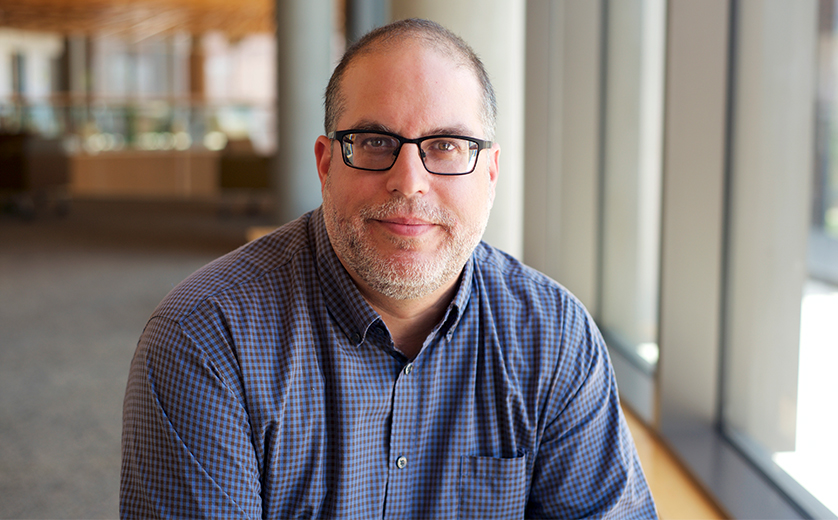People with serious mental illnesses, such as schizophrenia or bipolar disorder, die 10-25 years earlier than people in the general population, largely due to preventable medical conditions like cardiovascular disease, cancer, and diabetes. A new book by the Brown School’s Leopoldo J. Cabassa examines the reasons for these inequities and suggests ways to reduce or eliminate them. “Addressing Health Inequities in People with Serious Mental Illness: A Call to Action,” published by Oxford University Press, is the first book by Cabassa, a professor and co-director of the Center for Mental Health Services Research who focuses on mental health. The book has been more than a decade in the making.
“This book is deeply personal for me,” said Cabassa, who is Puerto Rican and has seen first-hand the impact of mental illness in his family, as well as the “double burden” faced by racial and ethnic minorities with serious mental illness. For more than 10 years, Cabassa has been researching the impact of mental illness and listening to the people who are affected. “I wanted to write a book for the general public that brings science, data, and people’s stories together to examine why these inequities are happening and what we can do about it,” he said. “These are the stories of people coping with these health issues and of the clinicians, researchers and policy makers working on the front lines to reduce these health inequities.”
Cabassa said that often, when people are diagnosed with serious mental illness, caregivers focus on mental health without attending to related physical illnesses and risky behavior, like smoking, and a lack of physical activity. Some unhealthy outcomes are caused by the untreated side effects of drugs patients are prescribed for mental illness. “Without appropriate supports and services, we’re putting people in a bind,” Cabassa said.
In the preface to the book, Cabassa writes that empathy has been central to his work. “It entails stepping into the world of others to understand their experiences without losing one’s perspective and objectivity…. to capture the lives of the people we are studying, to provide a voice to the voiceless, and to represent through numbers, stories, and analyses their needs, challenges, strengths, hopes, and dreams.”
Cabassa is also the Director of the Social Work PhD Program and of an NIH-funded training program in mental health services research and implementation science at Brown School. His work has been supported by the National Institute of Mental Health, the National Institute on Minority Health and Health Disparities, the Robert Wood Johnson Foundation, and the New York State Office of Mental Health.
Featured book in the WashU Bookshelf, which highlights the latest works from faculty and alumni authors.
